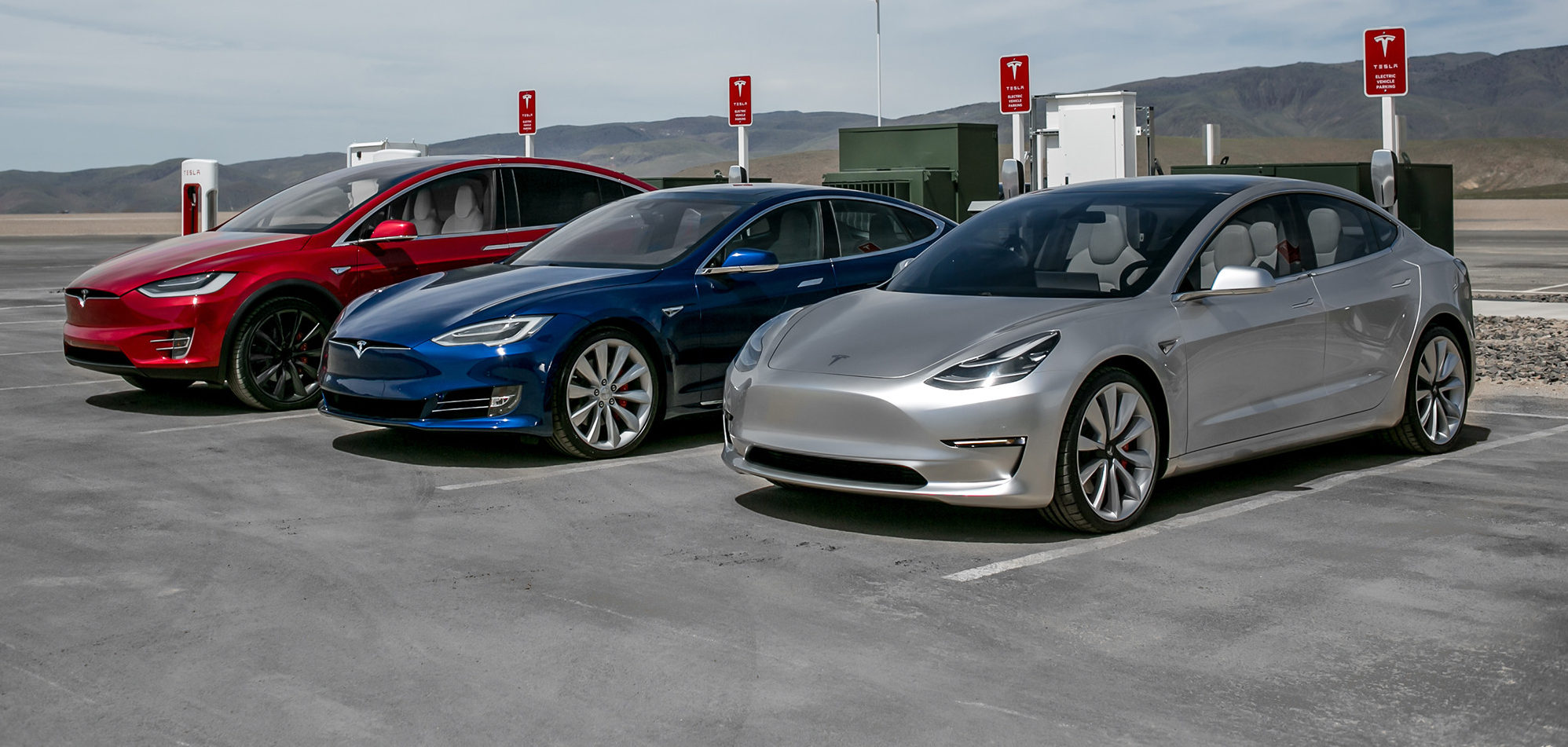
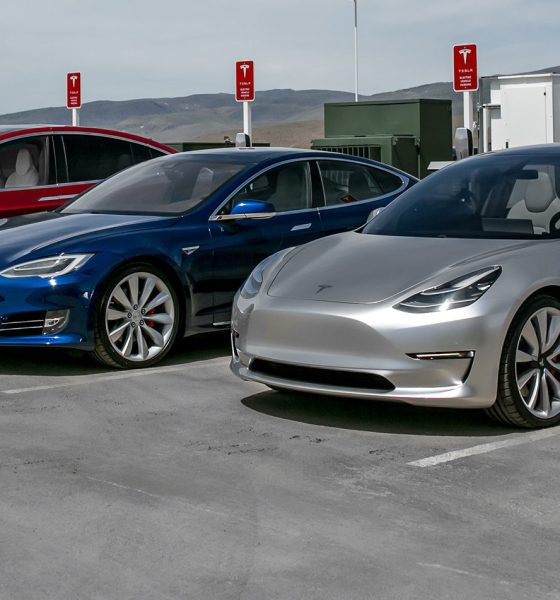
News
Tesla sales leap over 400% in Germany as Model 3’s European push continues
Tesla increased its market share last month in Germany’s auto market from .03% to .19%, according to the latest data from the Association of International Motor Vehicle Manufacturers comparing German auto registrations between April 2018 and April 2019. A total of 575 Teslas were registered in April 2019, representing a 442% increase over registrations in April 2018. Tesla’s increase in the German market from month to month also represented the highest growth out of all automotive brands in the country.
Tesla’s total number of cars registered in April 2019 represents a higher percentage of the total vehicles sold in Germany for the month by Alfa Romeo and Lexus, which commanded a market share of 0.12% and 0.11%, respectively. Given the current trends, Tesla’s market share in Germany will likely continue to grow as the all-electric car manufacturer continues its sales push into the European market. This suggests that Tesla’s blend of practicality, performance, and tech-driven luxury has enabled the company to carve out its own niche in a market associated with luxury automobiles.
The backdrop of impending emissions regulations set to take force in Europe looks to be making a significant show in the German car market as the number of alternative power vehicles registered in the country continues to increase. Electric vehicles showed a 50% growth over the past year, while hybrid car registrations increased by 5.4%. Diesel-fueled vehicle registrations remained stagnant in a year-to-year comparison between 2018 and 2019, while gasoline-powered vehicle registrations dropped 5.1% for the same time period.
Tesla’s efforts aimed at increasing sales in the German market showed hints earlier this year, when the combined sales of the Model S, Model 3, and Model X began approaching those of another German-born luxury brand: Porsche. In March, Porsche had 2,723 new vehicle registrations in the country, while Tesla posted 2,367. The gap has widened again in April, with Porsche’s registrations totaling 3,093 against Tesla’s 575; however, momentum still remains with Tesla. Porsche’s April 2019 sales represented 0.62% growth compared to April 2018 vs. Tesla’s 442% for the same period. Porsche’s cumulative sales for 2019 are also down about 25% in Germany.
Germany may see Tesla’s market share jump into native brand territory in the future if Gigafactory Europe is eventually built within its borders. In a series of tweets last summer, CEO Elon Musk revealed that the country was being seriously considered for the facility. “Germany is a leading choice for Europe. Perhaps on the German-French border makes sense, near the Benelux countries,” he tweeted. A Gigafactory in Europe stands to be a lucrative investment for Tesla in its efforts to saturate the region with its competitively priced Model 3 and possibly its coming Model Y.

News
Tesla leases new 108k-sq ft R&D facility near Fremont Factory
The lease adds to Tesla’s presence near its primary California manufacturing hub as the company continues investing in autonomy and artificial intelligence.
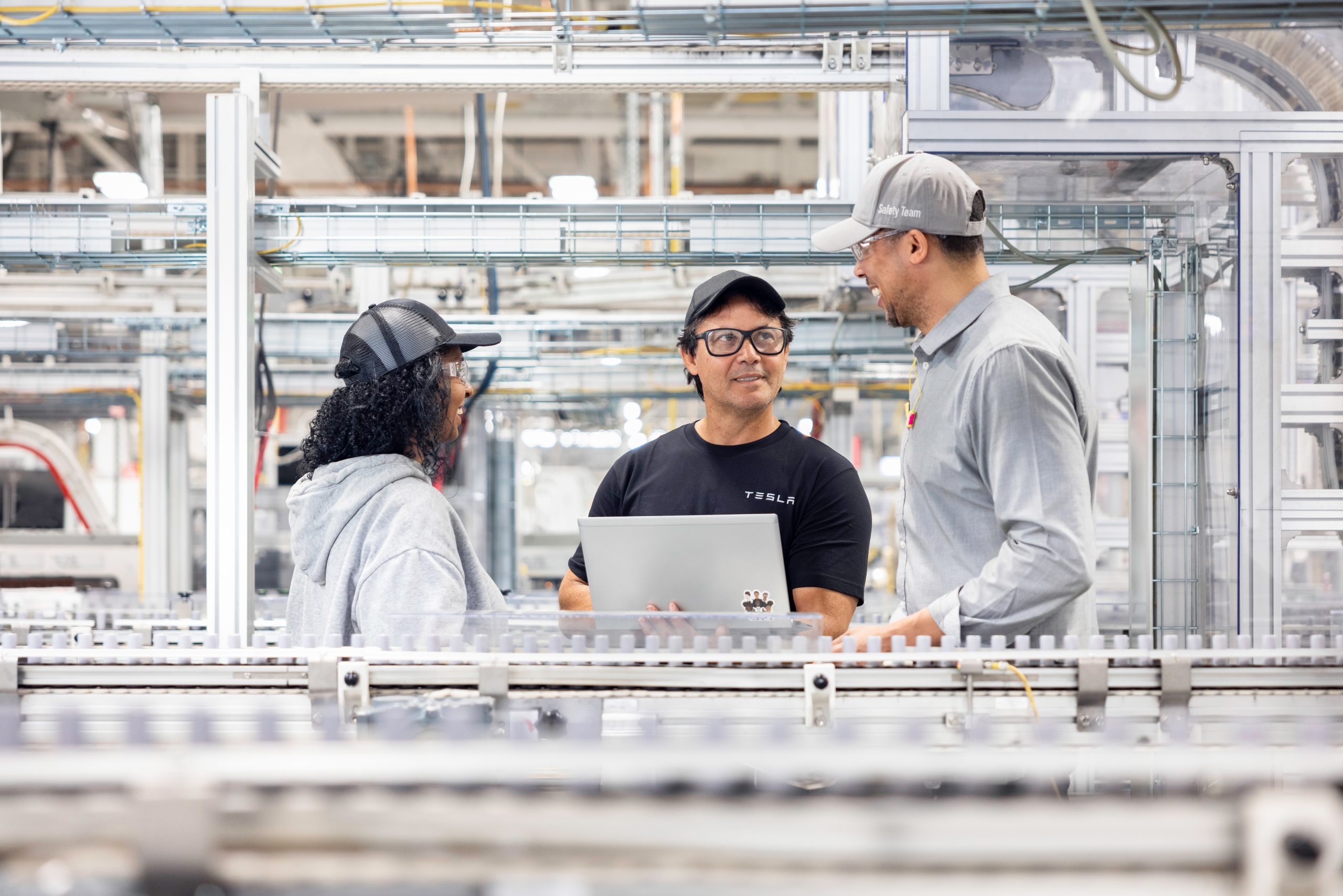
Tesla has expanded its footprint near its Fremont Factory by leasing a 108,000-square-foot R&D facility in the East Bay.
The lease adds to Tesla’s presence near its primary California manufacturing hub as the company continues investing in autonomy and artificial intelligence.
A new Fremont lease
Tesla will occupy the entire building at 45401 Research Ave. in Fremont, as per real estate services firm Colliers. The transaction stands as the second-largest R&D lease of the fourth quarter, trailing only a roughly 115,000-square-foot transaction by Figure AI in San Jose.
As noted in a Silicon Valley Business Journal report, Tesla’s new Fremont lease was completed with landlord Lincoln Property Co., which owns the facility. Colliers stated that Tesla’s Fremont expansion reflects continued demand from established technology companies that are seeking space for engineering, testing, and specialized manufacturing.
Tesla has not disclosed which of its business units will be occupying the building, though Colliers has described the property as suitable for office and R&D functions. Tesla has not issued a comment about its new Fremont lease as of writing.
AI investments
Silicon Valley remains a key region for automakers as vehicles increasingly rely on software, artificial intelligence, and advanced electronics. Erin Keating, senior director of economics and industry insights at Cox Automotive, has stated that Tesla is among the most aggressive auto companies when it comes to software-driven vehicle development.
Other automakers have also expanded their presence in the area. Rivian operates an autonomy and core technology hub in Palo Alto, while GM maintains an AI center of excellence in Mountain View. Toyota is also relocating its software and autonomy unit to a newly upgraded property in Santa Clara.
Despite these expansions, Colliers has noted that Silicon Valley posted nearly 444,000 square feet of net occupancy losses in Q4 2025, pushing overall vacancy to 11.2%.
News
Tesla winter weather test: How long does it take to melt 8 inches of snow?
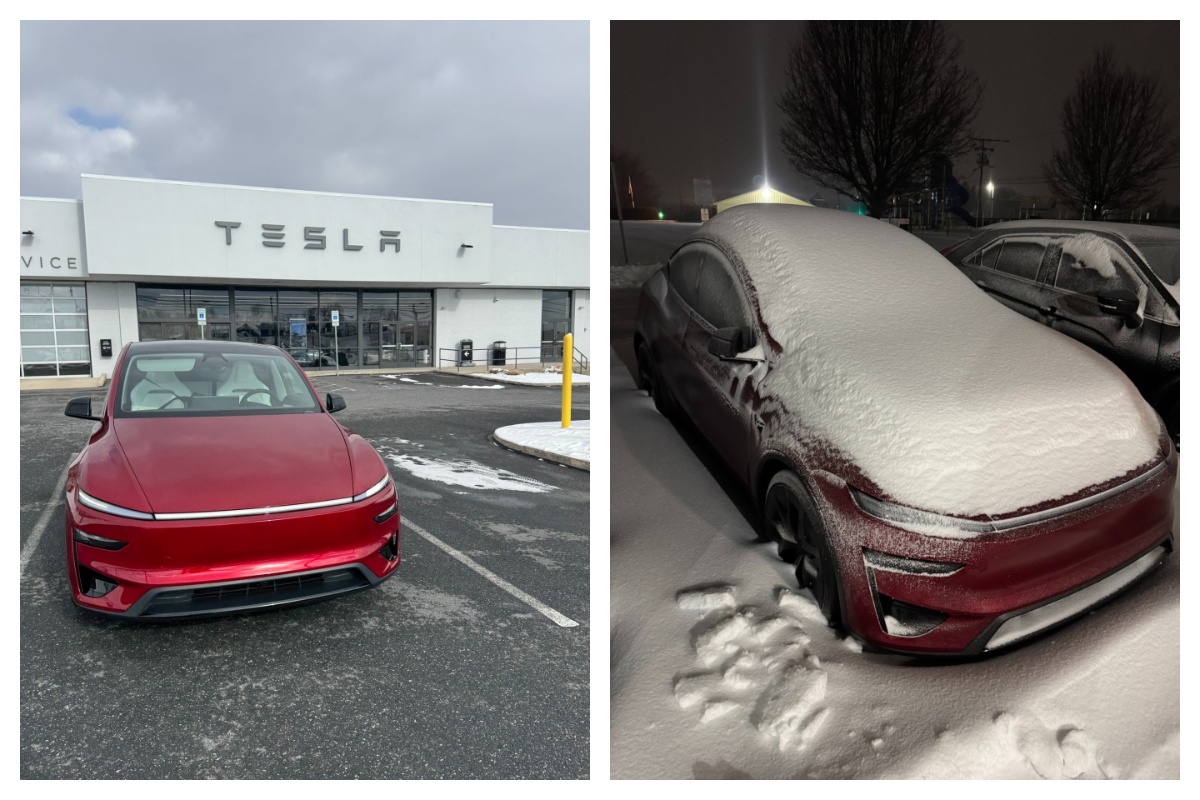
In Pennsylvania, we got between 10 and 12 inches of snow over the weekend as a nasty Winter storm ripped through a large portion of the country, bringing snow to some areas and nasty ice storms to others.
I have had a Model Y Performance for the week courtesy of Tesla, which got the car to me last Monday. Today was my last full day with it before I take it back to my local showroom, and with all the accumulation on it, I decided to run a cool little experiment: How long would it take for Tesla’s Defrost feature to melt 8 inches of snow?
Tesla’s Defrost feature is one of the best and most underrated that the car has in its arsenal. While every car out there has a defrost setting, Tesla’s can be activated through the Smartphone App and is one of the better-performing systems in my opinion.
It has come in handy a lot through the Fall and Winter, helping clear up my windshield more efficiently while also clearing up more of the front glass than other cars I’ve owned.
The test was simple: don’t touch any of the ice or snow with my ice scraper, and let the car do all the work, no matter how long it took. Of course, it would be quicker to just clear the ice off manually, but I really wanted to see how long it would take.
Tesla Model Y heat pump takes on Model S resistive heating in defrosting showdown
Observations
I started this test at around 10:30 a.m. It was still pretty cloudy and cold out, and I knew the latter portion of the test would get some help from the Sun as it was expected to come out around noon, maybe a little bit after.
I cranked it up and set my iPhone up on a tripod, and activated the Time Lapse feature in the Camera settings.
The rest of the test was sitting and waiting.
It didn’t take long to see some difference. In fact, by the 20-minute mark, there was some notable melting of snow and ice along the sides of the windshield near the A Pillar.
However, this test was not one that was “efficient” in any manner; it took about three hours and 40 minutes to get the snow to a point where I would feel comfortable driving out in public. In no way would I do this normally; I simply wanted to see how it would do with a massive accumulation of snow.
It did well, but in the future, I’ll stick to clearing it off manually and using the Defrost setting for clearing up some ice before the gym in the morning.
Check out the video of the test below:
❄️ How long will it take for the Tesla Model Y Performance to defrost and melt ONE FOOT of snow after a blizzard?
Let’s find out: pic.twitter.com/Zmfeveap1x
— TESLARATI (@Teslarati) January 26, 2026
News
Tesla Robotaxi ride-hailing without a Safety Monitor proves to be difficult
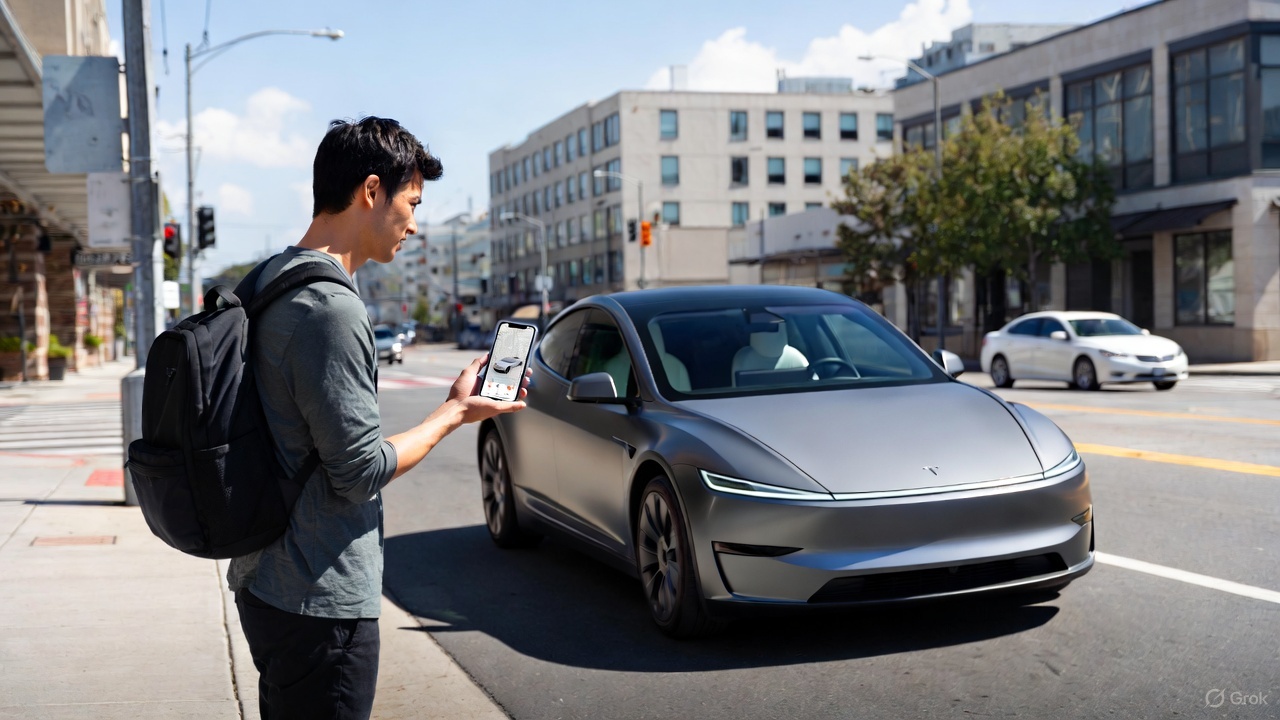
Tesla Robotaxi ride-hailing without a Safety Monitor is proving to be a difficult task, according to some riders who made the journey to Austin to attempt to ride in one of its vehicles that has zero supervision.
Last week, Tesla officially removed Safety Monitors from some — not all — of its Robotaxi vehicles in Austin, Texas, answering skeptics who said the vehicles still needed supervision to operate safely and efficiently.
BREAKING: Tesla launches public Robotaxi rides in Austin with no Safety Monitor
Tesla aimed to remove Safety Monitors before the end of 2025, and it did, but only to company employees. It made the move last week to open the rides to the public, just a couple of weeks late to its original goal, but the accomplishment was impressive, nonetheless.
However, the small number of Robotaxis that are operating without Safety Monitors has proven difficult to hail for a ride. David Moss, who has gained notoriety recently as the person who has traveled over 10,000 miles in his Tesla on Full Self-Driving v14 without any interventions, made it to Austin last week.
He has tried to get a ride in a Safety Monitor-less Robotaxi for the better part of four days, and after 38 attempts, he still has yet to grab one:
Wow just wow!
It’s 8:30PM, 29° out ice storm hailing & Tesla Robotaxi service has turned back on!
Waymo is offline & vast majority of humans are home in the storm
Ride 38 was still supervised but by far most impressive yet pic.twitter.com/1aUnJkcYm8
— David Moss (@DavidMoss) January 25, 2026
Tesla said last week that it was rolling out a controlled test of the Safety Monitor-less Robotaxis. Ashok Elluswamy, who heads the AI program at Tesla, confirmed that the company was “starting with a few unsupervised vehicles mixed in with the broader Robotaxi fleet with Safety Monitors,” and that “the ratio will increase over time.”
This is a good strategy that prioritizes safety and keeps the company’s controlled rollout at the forefront of the Robotaxi rollout.
However, it will be interesting to see how quickly the company can scale these completely monitor-less rides. It has proven to be extremely difficult to get one, but that is understandable considering only a handful of the cars in the entire Austin fleet are operating with no supervision within the vehicle.








